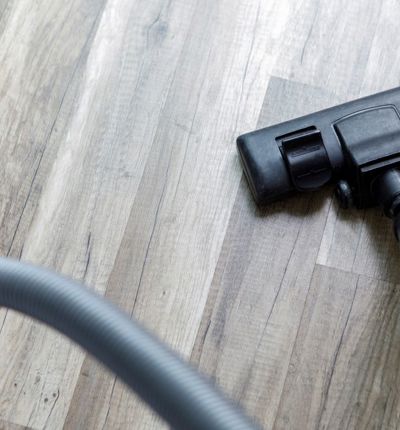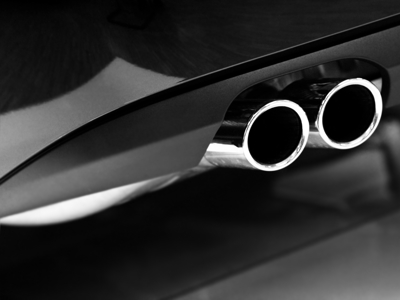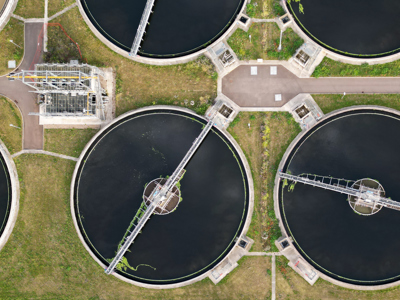
Court of Appeal confirms allegations of forced labour and dangerous conditions at Malaysian factories making products for Dyson can be heard in UK
The Court of Appeal has today ruled that a legal case brought by migrant workers against Dyson regarding allegations of forced labour and dangerous conditions at two Malaysian factories, which made electronics products for Dyson, can be heard in the English courts.
Posted on 13 December 2024
The Court of Appeal has today ruled that a legal case brought by migrant workers against Dyson regarding allegations of forced labour and dangerous conditions at two Malaysian factories, which made electronics products for Dyson, can be heard in the English courts.
The claim against Dyson is being brought by 23 migrant workers and the estate of one deceased migrant worker who worked at factories operated by two supplier companies ATA Industrial and Jabco in Johor, Malaysia, where many Dyson products were made. The factories were operated by ATA and Dyson denies that it is responsible for any unlawful acts of ATA Industrial and Jabco.
The group of Nepalese and Bangladeshi workers worked at the factory for between three and nine years. They allege forced labour, false imprisonment, assault, battery, cruel and degrading treatment and exposure to extremely hazardous working conditions and abusive living conditions.
In 2023 the High Court ruled the case should be heard in Malaysia and not in England after Dyson, which now has its HQ in Singapore, challenged the right of the English courts to hear the claims. Dyson argued that there was not a sufficient connection to the UK for it to be heard here, pointing to the fact that any alleged wrongdoing happened in Malaysia and Malaysian law applies. Dyson also argued that since the claimants will have access to justice in Malaysia, the claims should be heard there.
A Court of Appeal hearing was held on 26 and 27 November 2024, with the workers arguing the claims should be heard in the English courts as they relate to alleged harm caused by decisions and policies made centrally by Dyson UK companies and personnel. The claimants also argued that there is a substantial risk that they would not be able to access justice in the Malaysian courts, in part owing to their inability to fund a legal claim and obtain suitable legal representation who would be prepared to take on their case in Malaysia.
The Court of Appeal accepted the claimants' arguments and overturned the High Court ruling, confirming that the claim can proceed in the High Court in London.
The Court of Appeal found the High Court judge had made a number of errors, including failing to take account of the fact that the two “principal” protagonists, the Dyson UK defendants, were domiciled in England and therefore those defendants “can reasonably expect, and be expected, to meet claims against it in such courts” (paragraphs [34]-[37]).
In light of these numerous errors, the Court of Appeal reconsidered the issue of the appropriate forum and decided that the claims can proceed in the English High Court, on the basis that:
- the impoverished claimants would be unable to fund their claims in Malaysia and Malaysian NGOs and lawyers could not be expected to fill the funding gap (paragraphs [63] to [64]);
- the majority of the most important documents and witnesses would be located in England not Malaysia (paragraphs [66] to [67]);
- the claimants would be unable to attend hearings in person in Malaysia for fear of arrest by immigration authorities due to visa breaches during the period in which they allege they were trapped in modern slavery (paragraph [68]); and
- there would be inequality of arms between the parties in Malaysia (in comparison to England where the claimants have obtained experienced legal representation) as "there is a huge imbalance between the impoverished and vulnerable claimants and the well-resourced and commercially experienced defendants, and the allegations are of very serious human rights abuses, there is a particular need to ensure equality of arms in the conduct of litigation if justice is to be served” (paragraphs [75] and [59]).
The civil negligence claim is being brought against three Dyson companies within the Dyson Group: Dyson Technology Limited and Dyson Limited, based in Malmesbury in Wiltshire, and Dyson Malaysia in Johor Bahru near to the ATA Industrial and Jabco factories.
The next step will be for the English High Court to hear submissions from the parties as to how the claims should be managed, and to set a timetable for the remainder of the proceedings up to a liability trial.
The claimants are represented by partner Oliver Holland of law firm Leigh Day, with barristers Marie Louise Kinsler KC and Tom Fairclough of 2 Temple Gardens and Edward Craven of Matrix Chambers.
One of the claimants, Dhan Kumar Limbu, said:
“When I started this case with my colleagues, I was hopeful that UK law would support our claim. The UK Courts have established a benchmark for justice for vulnerable people like me, allowing our voices to be heard. I would like to thank everyone who has supported our claim with their endless effort.”
Leigh Day partner Oliver Holland said:
“The Court of Appeal’s decision ensures our clients have the opportunity to seek justice in a forum where they believe they will have a fair chance of holding Dyson accountable for its alleged role in the abuses they suffered and the horrendous conditions they were made to work in. This case also underscores the importance of multinational corporations ensuring they have full knowledge of the conditions in their global supply chains.
“Our clients are pleased that the Court of Appeal has allowed these claims to proceed. However, they have suffered significant delay due to the Defendants’ attempt to prevent the claims being heard in the English courts – they now want their claim to be resolved as soon as possible in the hope that they can get something back for what they lost and move on with their lives.”
Andy Hall, Independent Migrant Worker Rights Specialist, said:
“The Appeal Court’s decision to accept jurisdiction in the migrant workers’ forced labour claim against Dyson means the workers now have an important legal channel to pursue their claim.
“Given these workers haven’t been able to achieve justice and compensation regarding their alleged abuse in Malaysia, they hoped the UK courts would enable their case to be heard in the English courts. The UK justice system, in the end, has not disappointed them.
“The decision of the Court of Appeal has sent a strong signal that companies cannot escape responsibility for the treatment of their workforce by outsourcing their production to countries where migrant workers find it difficult to access justice and remediation.”
Background
The claimants, who are all represented by law firm Leigh Day, were employed at the factories, which predominantly produced products for Dyson’s vacuum cleaner, lighting, haircare, heaters and fan ranges. ATA Industrial was Dyson’s largest ‘box-build’ (the complete assembly of a customer’s finished product) partner, supplying around one third of its global ‘box-build’ production.
The former workers allege that Dyson had known about allegedly unlawful conditions since at least November 2019 when they were notified by whistleblower Andy Hall. Additionally, they argue that the exploitation and dangerous working conditions faced by migrant workers in Malaysian factories has been widely reported for over a decade and is something that Dyson should have been aware of. Dyson disputes that it had knowledge of any wrongdoing since 2019 and says in 2019 it investigated Mr Hall’s claims and determined they were not substantiated.
In their legal claim, the workers argue that Dyson was unjustly enriched as a result of the allegedly unlawful, exploitative and dangerous conditions at the factory. They argue that Dyson is liable for the alleged breaches of their legal rights due to the company’s knowledge of the alleged unlawful practices at the ATA factory and because of their alleged assumption of responsibility through numerous public statements regarding their policies and procedures for detecting and preventing forced labour and exploitation in their supply chains, and the audits they conducted of the Malaysian factories to ensure compliance with these policies.
Related Content

Oliver Holland
Oliver is a partner in Leigh Day's international and environment teams. Oliver's practice covers environmental harm, human rights, modern slavery & consumer litigation, including expertise in conflict of law issues & cross-border disputes.

High Court gives green light to group claim over alleged faults with Jaguar Land Rover vehicles
The High Court has given the go-ahead for claims brought on behalf of more than 42,000 drivers who say they have experienced faults with the diesel particulate filters (DPFs) in their Jaguar Land Rover (JLR) vehicles to be managed as a group action.

Wild swimmer Jo Bateman’s claim against South West Water strengthened by Supreme Court ruling in Manchester Ship Canal sewage case
Wild swimmer Jo Bateman’s legal claim against South West Water has been strengthened by a Supreme Court decision that private citizens can sue for nuisance caused by sewage pollution.

